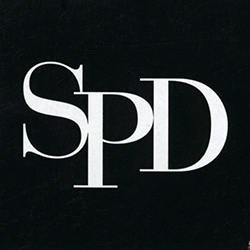Earlier this year, publisher Elizabeth Clark Wessel received some welcome news from Small Press Distribution (SPD), the nonprofit based in Berkeley, California, that distributed collections published by her poetry press, Argos Books: SPD owed Argos $3,200 for titles it had sold. “For us, that’s basically the printing costs for a whole book,” Wessel says. “I was really excited.”

But then Wessel learned the money is unlikely to materialize: SPD was closing, effective immediately. In his March 28 announcement SPD’s executive director, Kent Watson, blamed declining book sales and institutional grants, along with other business problems, and told SPD’s approximately four hundred client presses that the California courts will oversee the disbursement of any money still left in the distributor’s accounts. “I really did just start to cry,” Wessel says. “We’ve put so much of our own money into this over the years, and so much of our time. It’s a labor of love.”
Argos was far from alone. According to an April survey by the Community of Literary Magazines and Presses (CLMP), 123 member presses were owed money by SPD, ranging from $340 to $40,000. Seventeen presses said they might have to shut down altogether because of financial hardship.
“If publishers haven’t had an opportunity to get their books to a different distributor, they’re not able to sell books right now, so those are losses,” says Mary Gannon, CLMP’s executive director. “Then there are the additional losses of the shipping and handling costs to get their books back from where SPD had warehoused them. And just the staff time it’s taking to figure out a solution—that, too, is for real.”
The demise of SPD, which was founded in 1969, shines a light on a corner of the literary marketplace most readers, and even many writers, rarely think about. Book distributors stand between publishers and bookstores, managing the complex logistics of ordering and shipping books and warehousing leftover titles until they’re either sold or pulped. SPD was unusual in that it operated as a nonprofit, which allowed it to keep its fees low so its clients, many of them focusing on poetry, could publish experimental work ill-suited to commercial publishing, which relies on a quick sell-through of popular titles.
Aware of what’s at stake for the small press community, literary organizations are stepping in to offer support. The Poetry Foundation pledged $150,000 to help defray costs for nonprofit poetry presses affected by SPD’s closure; those presses can apply for grants of up to $7,500. Through a partnership with the New York State Council on the Arts, CLMP in April offered grants of $500 and $1,000 to nonprofit presses in New York State that are struggling after SPD’s shutdown.
Presses that relied on SPD are now scrambling to find ways to get their books in readers’ hands. In addition to selling directly from their own websites, many have turned to Seattle start-up distributor Asterism. Launched in 2023 by Phil Bevis and Joshua Rothes, who also runs the small press Sublunary Editions, Asterism saw its client base balloon from fifty presses in early March to more than one hundred by late April. But Asterism has some drawbacks. While SPD supplied books to Amazon, a key market for many small press books, Asterism does not and instead plans to launch its own seller account on the e-tailer’s website. Nor does it allow stores to return unsold books, a practice Rothes views as “a relic of the Depression-era book trade.” Since the 1930s, publishers—and now book distributors—have offered bookstores full rebates on titles they don’t sell, on the theory that it encourages booksellers to stock more books.
That has been true for Elliott Bay Book Company in Seattle, which was a longtime client of SPD. “Allowing returns lets us take more chances on new books,” says Rick Simonson, Elliott Bay’s book buyer. While Simonson says he is excited to work with Asterism, he will take a somewhat different approach than he did with SPD. “Yes, we’ll order [from Asterism] but more cautiously than if returns are allowed.” (Asterism does allow returns for damaged books as well as for books destined for book events and college courses.)
Some publishers may also have the option of distributing their books with the distribution giant Ingram Content Group, which, along with Publishers Storage and Shipping, had been warehousing books for SPD. But Ingram tends to work with presses that have higher sales than most of SPD’s client presses. Other distributors that have reportedly taken on SPD’s former clients include Independent Publishers Group (IPG) and Itasca Books. By mid-May, Itasca—the distribution arm of Minneapolis-based Bookmobile, which accepts single-title publishers—had added five new presses to its roster of one hundred fifty clients; IPG, based in Chicago, had added nine to the two hundred “‘solid’ indie presses” it already served, according to Publishers Weekly.
Other small presses may have to rethink their publishing model as well as their method of distribution, one option for which is a print-on-demand service. That’s what Roberto Carlos Garcia did with his eight-year-old poetry press, Get Fresh Books, based in northern New Jersey. In 2020, annoyed by the amount of online paperwork and time it took for SPD to pay for sales, Garcia switched to IngramSpark, a program run by Ingram Content Group, which prints and ships a publisher’s book only when a customer orders it. Garcia says it has kept costs down—and allowed the press to sidestep the chaos of the SPD closure. “Ingram has its issues, don’t get me wrong, but from where we are as a press right now, it keeps us nimble,” he says. “We’re not overcommitted, and we’re not spending too much money to produce the books.”
For writers the impact of SPD’s demise was felt most keenly by those who published a book in the weeks after the closure announcement and may have had problems getting their titles to events, stores, and buyers. In the long term all writers—particularly those who write poetry and less commercial work championed by independent presses—may be affected by SPD’s closure: If small presses cannot affordably distribute their books, then they too may be forced to close.
SPD had its own internal problems that contributed to its demise, including allegations of wage theft and workplace harassment in 2021, when it was under previous management, but it also faced market headwinds with the corporate consolidation of the book trade, the advent of new formats like e-books and the growing popularity of audiobooks, and a decline in institutional funding for the arts. Finding a new way for small presses to cheaply and efficiently distribute their books will require a combination of business innovation and stronger institutional support, industry experts say.
“I think there will have to be a reimagining of how books get into the hands of readers,” says Gannon, CLMP’s director.
Michael Bourne is a contributing editor of Poets & Writers Magazine. His debut novel, Blithedale Canyon, was published by Regal House in 2022.








